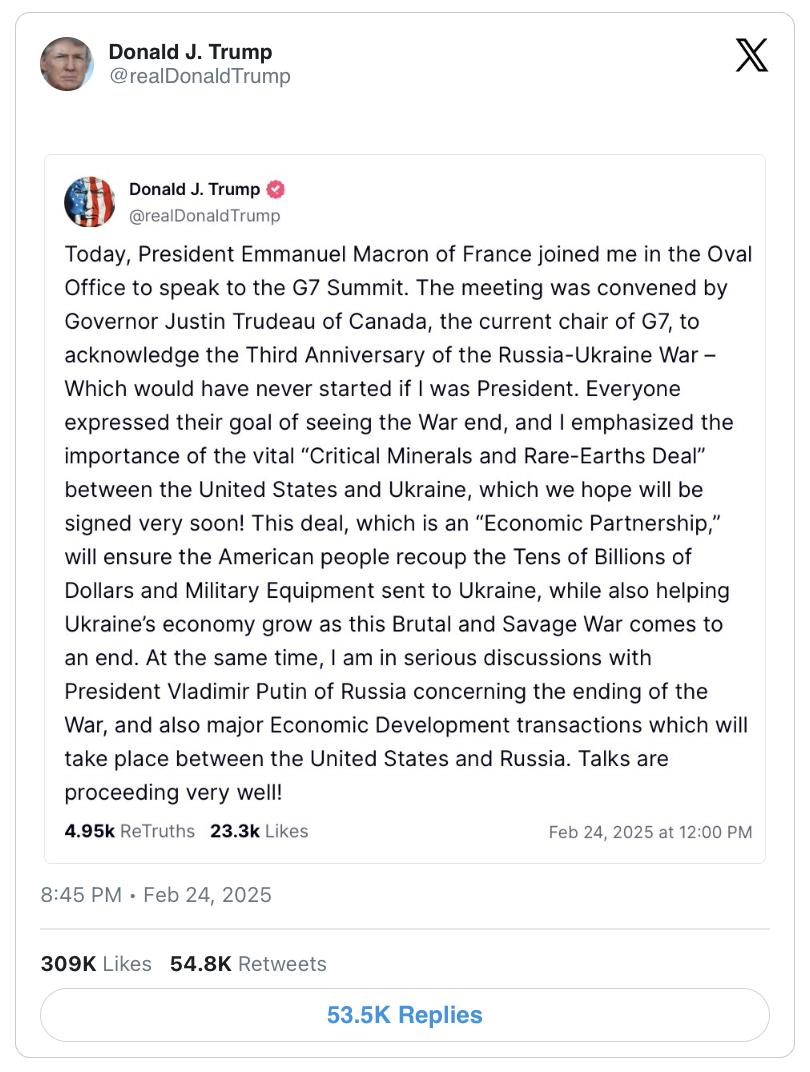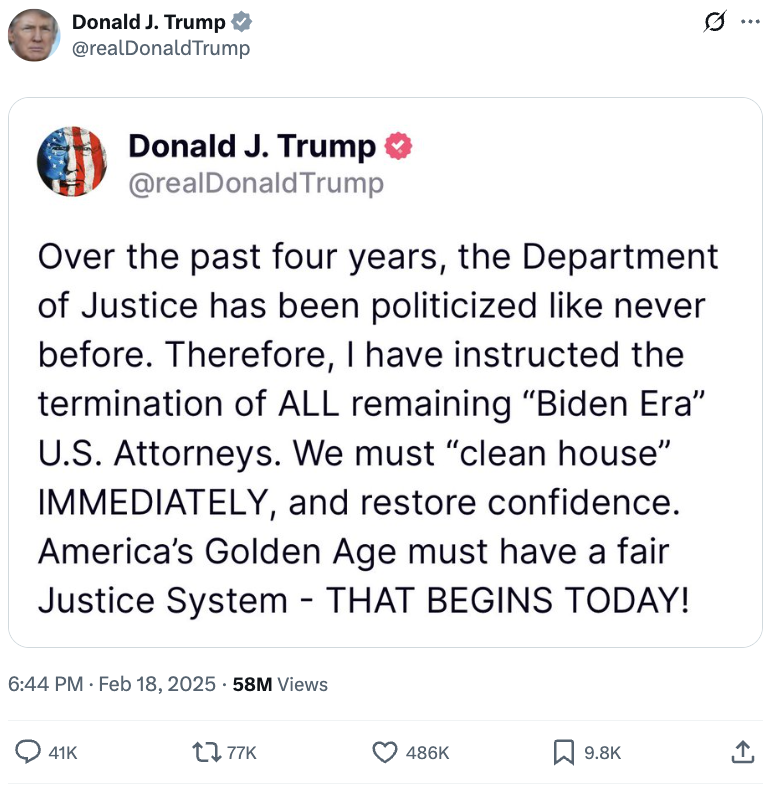Who Pays for Peace?
What has President Trump said this week?
〰️
What has President Trump said this week? 〰️
1. Trump’s Push for Peace: Charging for the Russia-Ukraine War
One of Trump’s first major foreign policy moves has been to take a direct role in coordinating peace talks between Russia and Ukraine. However, his approach has sparked debate, with critics pointing to the limited involvement of European nations and Ukraine itself in the negotiations. Trump has repeatedly asserted that the war “would have never started if I was President”.
On Monday, February 24, Trump highlighted the Critical Minerals and Rare-Earths Deal between the U.S. and Ukraine, stating on X (formerly Twitter) that the agreement “will be signed very soon!” According to Trump, the deal is intended to help the U.S. recoup “the tens of billions of dollars and military equipment sent to Ukraine” while simultaneously boosting Ukraine’s economy.
Trump has claimed that the U.S. has spent $350 billion on the war, but official data tells a different story. According to the U.S. Ukraine Response Oversight, Congress has allocated $183 billion in aid to Ukraine, which includes military assistance and humanitarian support. Additionally, approximately $58 billion of that funding has gone directly into the U.S. defense industry, reinforcing domestic weapons production and defense investments.
2. What's the Critical Minerals and Rare-Earths Deal about?
President Donald Trump has proposed a Critical Minerals and Rare-Earths Deal to Ukrainian President Volodymyr Zelensky, aiming to secure U.S. access to Ukraine’s vast mineral resources. The agreement would grant the United States 50% of revenues from Ukraine’s mineral and natural resource exports in exchange for past and potential future military support against Russia. Under the deal, U.S. companies would gain 50% ownership of Ukraine’s rare earth deposits, a move designed to strengthen American control over critical supply chains. Key resources covered include rare earth elements, uranium, lithium, oil, and natural gas (CSIS, 2025).
Proponents argue that reducing dependence on foreign suppliers—particularly China—is essential for U.S. technological advancement and national security (Foreign Policy, 2025). However, the deal is controversial, with experts warning that Ukraine’s war-damaged infrastructure may pose significant challenges to large-scale mining operations and have raised concerns that it could tie the U.S. to long-term military commitments in the region.
As of Wednesday, February 26, Ukraine has announced its acceptance of a preliminary agreement with the U.S. However, a key consideration remains: an estimated 40% of Ukraine’s metal resources are currently under Russian control, according to Ukrainian think tanks We Build Ukraine and the National Institute of Strategic Studies, citing data from the first half of 2024 (Reuters, 2025). Notably, no detailed breakdown of these figures has been provided
3. Cleaning the House remains a top priority for the President
Citing concerns over politicization under the previous administration, President Trump has ordered the termination of all remaining "Biden-era" U.S. attorneys in an effort to "restore confidence in the justice system." This directive has led to a wave of firings and resignations in recent weeks.
While some argue that replacing U.S. attorneys from a prior administration is standard procedure, reports indicate that many dismissals specifically targeted officials involved in the investigation and prosecution of the Capitol attack (CBS, 2025). This has raised concerns about whether the Justice Department’s independence is at risk.
An independent Department of Justice is an essential part of a functioning democracy. Its role is to enforce the law impartially, to provide legal leadership in federal crime fighting and national security, and, most importantly, serve as the institution where American citizens look for the Rule of Law (CBS, 2025).



